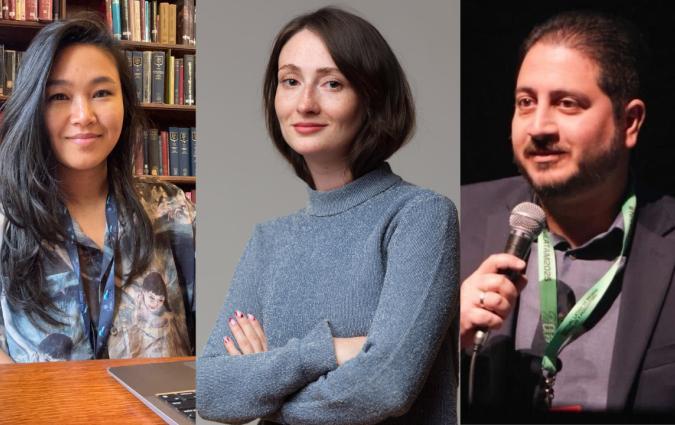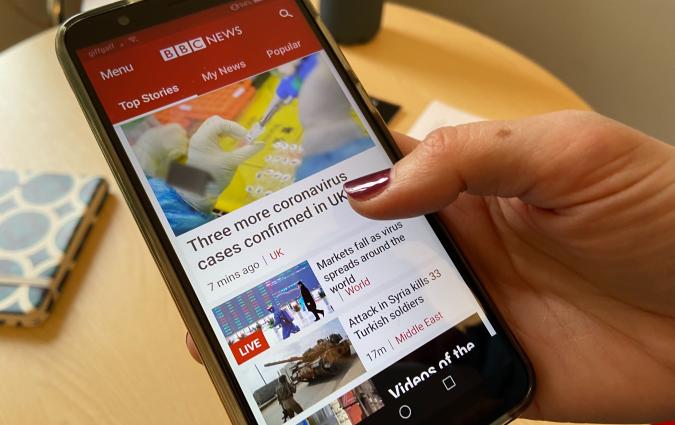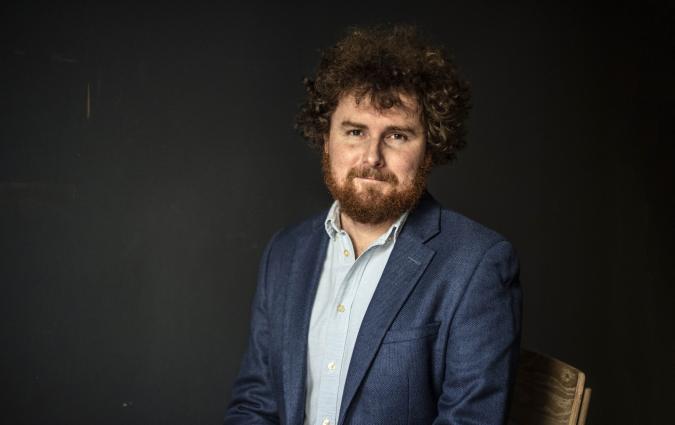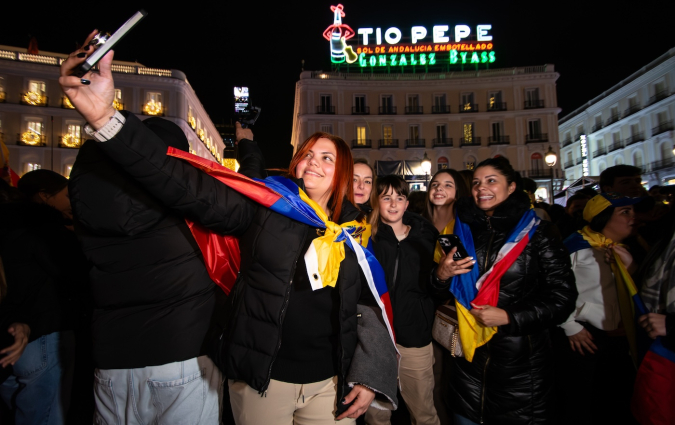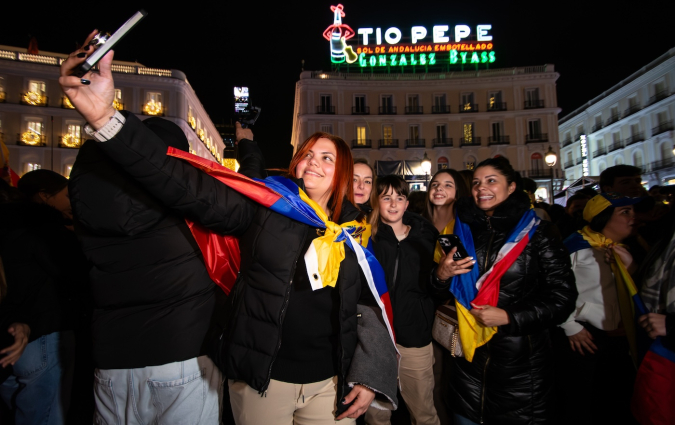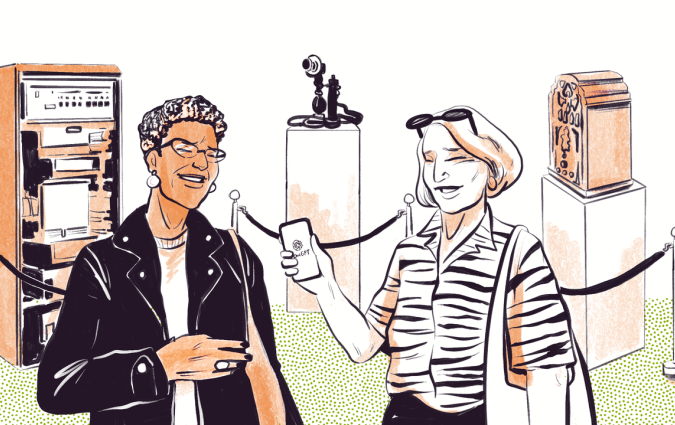How African news organisations can build strong alliances across the continent
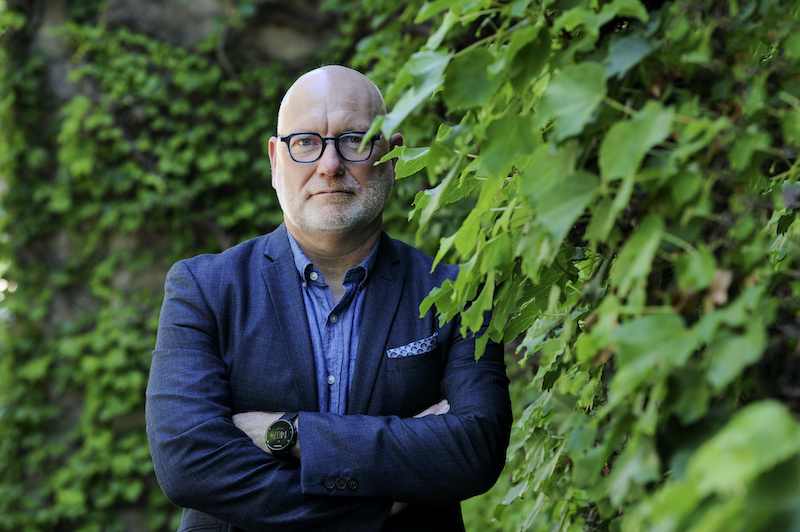
Herman Wasserman, Professor of Media Studies at the University of Cape Town.
When African newspaper journalists signed the Windhoek Declaration on May 3, 1991, there was an air of optimism that it would pave the way to the achievement of the press freedom ideals journalists aspired for. The date was eventually declared World Press Freedom Day and it is still celebrated around the globe.
Exactly 30 years later, there is a sense that the African media has missed an opportunity to achieve some of those ideals. According to a new report by Herman Wasserman, a professor of Media Studies at the University of Cape Town, one of those missed opportunities is not using the strength of numbers through regional cooperation. I spoke to Professor Wasserman about his findings. Our conversation has been lightly edited for brevity and clarity.
Q. Your report looks at regional cooperation as a critical tool. Could you share with us why you thought the Windhoek Declaration could have been an important recalibration moment?
A. The Windhoek Declaration arose from a period where there were the winds of change. The third wave of democracy had swept through the continent and there was a recognition of the importance of independent media for the deepening of democracy.
It is quite an influential document. It was based on regional deliberations among a number of organisations and stakeholders on the continent. It formed the basis for further collaboration, a benchmark, a reference point for future work. It also highlighted a number of different challenges that African journalists faced at the time: intimidation, censorship, imprisonment, practical problems like lack of equipment, training and resources. Many of those [challenges] are still with us.
So I guess what we are asking is, ‘where has that momentum gone? Can we harness it again? Can we rebuild coalitions in the region that meet these challenges in the contemporary context?’ And although there are many similarities still with the ‘90s, there are also new things. Africa is part of a much more globalised media landscape. Digital has become more important and there’s a recognition that African voices need to be heard in global policy-making. So although there are continuities, there are also new elements coming to the fore.
Q. Your report focuses on regional cooperation as a driver for media reform. How and why did you zero in on this area?
A. The report builds on previous discussions around how to strengthen regional networking and regional coalitions. This is really a participatory project where I had discussions with a number of individuals, stakeholders, and representatives of organisations in the region. What emerged is that there is a strong desire for organisations to work more closely together.
Q. In the report you outline a few benefits of regional cooperation for media reform. What are those benefits?
A. Some alliances can encourage collective action against threats to media freedom. Some of the networks already exist maybe in-country or between some countries, like the African Editors’ Forum or the South African Editors’ Forum, which already do embark on that sort of collective action. If there is a journalist, for instance, that is imprisoned or threatened in a neighbouring country, other members of that coalition can mobilise.
Another benefit is that it can amplify local voices in regional and international forums. There is an increasing need for African voices to be heard in the spaces where policy is made, especially around digital rights and access to digital platforms. So if there is a strong coalition that can help amplify these local voices, that could be a further benefit because often these voices are not heard.
The third benefit is that the coalition can also help to activate a variety of capacities and resources. Many organisations in the region are small. They may be working in isolation and they are not well resourced. So being part of a group immediately gives you access to a diverse range of skills, education, knowledge and financial resources.
Another benefit of building networks is that they provide a platform for cross-border learning. You may have an organisation in a country that has knowledge around a certain aspect of digital policy-making and can help other outlets in other countries.
The next point is that you can connect smaller countries to the resources of larger ones. Small countries like Malawi or countries that are less developed or less resourced like Mozambique and Angola can benefit from more coalitions with bigger countries such as South Africa.
Finally, you can leverage the incentives for national media reform. And this goes back to the first point I made about the collective action against threats, you can advance and accelerate national media reform if this is supported and resourced by a broader network.
So there are various advantages and benefits from building that kind of network. But how do you build that? That is what the report explored further.
Q. Are there any examples of organisations that either journalists or practitioners have used to strive for some of these goals?
A. There are several organisations in the region that have a history of working together. But sometimes these sorts of coalitions gain momentum, and that momentum peters out again for various reasons. The first one that comes to mind is the Media Institute for Southern Africa (MISA). They used to play a very active role. You have organisations like the Namibia Media Trust or the African Editors’ Forum. These organisations have organised meetings to try and explore some of these questions and build these networks.
And then there have been issue-specific activities like the Declaration of Principles on Freedom of Expression and Access to Information in Africa. The adoption of that declaration by the African Commission and the UN was an example of how different stakeholders and organisations can come together around a very specific outcome.
The report wanted to find out why that coalition building or collaboration is really untapped and [yet] there is potential for it [to be harnessed]. There have often been attempts to do it, and the question is how can we sustain that. How can we build a network that really harnesses that potential for cooperation further?
Q. On the issue of sustainability, MISA for instance emerged shortly after the Windhoek Declaration and has done a quite good job over the years. But you say its strength is kind of petering out. What leads to that kind of loss of influence over time?
A. There are different things that determine the ebb and flow of organisations. Sometimes people harness their efforts around specific issues and then move on or maybe they are not always agile enough to adapt. Or it has to do with the model itself sometimes. In the MISA case, it was quite a big hierarchy, with a central office plus chapters in different countries, and so some of the questions asked were whether that sort of hierarchy is really the best way to go.
Another aspect that needs consideration is the question of funding. Often, organisations in the region compete for funding and one of the suggestions in the report is that funders should also consider working more closely together instead of working with particular organisations. Cooperation and coordination between funders minimises competition between organisations for limited funding, and it would make sure the reporting and all the administration work is handled in an efficient and streamlined manner.
Sometimes it is also a matter of momentum that is gained around specific issues at a specific time. Those issues and challenges change over time and the organisations need to adapt and maybe change.
Q. Where do media practitioners in Africa face the biggest challenges to regional cooperation?
A. The first challenge is leadership: where does it come from and what does it look like? That is a question that still needs to be resolved, and there are different opinions around that. The first step would be to identify which organisations can move the priorities forward. But there are always questions on whether a specific organisation should be identified to take the lead or maybe whether there should be a more rotational or fluid type of organisation.
The second challenge is how you move from research to policy and from policy to action. It is important that there is a limited and clear set of goals and that there is a broader sectoral engagement. In other words, it’s important that these organisations consult with a variety of communities and citizen organisations in the region.
Q. Any other challenges?
A. There are also more ongoing challenges and conflicts, differences of opinion. The first is ensuring sustainability. This means financial and logistical sustainability and also sustainability in terms of knowledge transfer. How does a coalition or cooperation like this make the most of the available funding and how do the funding mechanisms by international donors, for instance, support that type of cooperation in the best ways possible?
A further challenge is how coalitions can decide on what the priority areas are, what are the biggest goals and their approaches. One of the main points that was raised was that a regional coalition would have to amplify African voices not only in regional but also in global debates. So, there is an internet governance forum internationally, the Forum on Information and Democracy, and the Reuters Institute for the Study of Journalism itself, and Reporters Without Borders, they have all engaged in initiatives that try to incorporate a variety of voices. So, I think there is a broad recognition that this coalition or this cooperation can’t work in isolation. It would have to engage those organisations that work on a global level.
Q. You have just mentioned how organisations that work at a global level can offer support. How would you wish to see those international players supporting the African media ecosystem without being seen to interfere and without stopping an organic development of cooperation between countries in the region?
A. That is an important and a difficult question because it touches on the nature of collaboration and on the history of global power relations in the media. It also taps into broader questions around how media freedom can be diversified and internationalised in a sense that this is not a parachuting in of international organisations.
I think what is important here is that a space is created for engagement, so the first step is that there is a space created where these voices are allowed to emerge, and we do see that already through the Reuters Institute and many other organisations globally. These organisations are not always successful and sometimes those attempts are still limited, but I think one has to recognise the willingness of these organisations to engage.
The second aspect is that there should then be a strong voice from the region that can engage in those spaces. Once those spaces for dialogue and input are opened up, then we should ensure that the African voice that is heard in those spaces is a strong one. That is the responsibility of organisations in the region; to make sure that this voice is built, that draws on the experience of a variety of stakeholders, and that it also identifies those windows of opportunity where they can engage.
Q. You write passionately about the untapped potential for collaboration in Southern African. It is a key message in the report. Are there examples in other parts of the continent or in the Global that you see as examples?
A. If we look to the Media Foundation for West Africa, it is a widely respected foundation and they have also managed to engage in the region with the Economic Community of West African States (ECOWAS), an inter-governmental body there. They have also shown how a window of opportunity can be seized to forge those collaborations further. So, I think [they and other organisations on the continent] show us that coalition-building can have a lot of benefits, that good outcomes can be derived from it and the challenge really is how to move forward with this in a way that has wide buy-in and that addresses the concerns that might still exist.
Q. Exactly 30 years from the Windhoek Declaration, Namibia will host World Press Freedom Day 2021. It is almost like a chance to press the reset button. What would you wish those interested in media reform across the Global South to bear in mind in the quest to enable independent journalism to thrive going into the next 30 years and beyond?
A. That’s a big wish list. To celebrate the 30 years of the Windhoek Declaration is important because it was a highly symbolic, very powerful moment that continued to reverberate on the continent and even further afield in that journalists and organisations, with the support of international organisations like UNESCO, made clear that independent media is important for the deepening of democracy, and with that we can also include the importance of ethical and responsible media.
The celebration also highlights that it's important for governments to acknowledge the value of independent media. So I hope that the commemoration of Windhoek will again highlight these values of media independence, of ethical journalism, of respect for freedom of expression. There are lots of issues on the continent that we are concerned about, and these are issues to do with threats to journalists, the impunity of governments that persecute journalists, sustainability, the threats of disinformation. So I hope that the commemoration of Windhoek will again provide this impetus for this recognition of the importance of independent, sustainable and ethical media, without which democracy cannot thrive on the continent.
Benon Herbert Oluka is an Ugandan multimedia journalist, a co-founder of The Watchdog, a centre for investigative journalism in his home country, and a member of the African Investigative Publishing Collective. Oluka’s work has been recognised three times on the African continent as winner of the 2008 Akintola Fatoyinbo Africa Education Journalism Award (First Prize, English category), the 2011 CNN-MultiChoice African Journalist of the Year Award (Tourism category) and the Thomson Reuters’ 2011 Niall FitzGerald Prize for Young African Journalists.
A three-day conference will take place in Namibia from 29 April to 3 May 2021 to mark the 30th anniversary of the Windhoek Declaration and to celebrate World Press Freedom Day.


